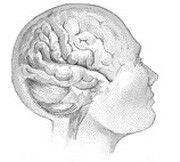Depression May Be a Symptom of Parkinson's Disease
Depression may be a very early symptom of Parkinson's disease, or a risk factor for the disease.

Patients with depression may be more likely to develop Parkinson’s disease, according to findings published in Neurology.
Researchers from Umea University in Sweden analyzed 140,688 cases of depression (diagnosed between 1987 and 2012) in order to investigate the long term risk of Parkinson’s disease after depression. The researchers additionally looked at siblings of the patients. The depressed patients were matched with three control participants of the same sex, year of birth, and had not been diagnosed with depression (more than 420,000 matched controls).
“We saw this link between depression and Parkinson’s disease over a time span of more than two decades, so depression may be a very early symptom of Parkinson’s disease or a risk factor for the disease,” study author Peter Nordström, PhD, explained in a press release.
The researchers tracked the patients for approximately 7 years and found that during that period, 3,260 individuals were diagnosed with Parkinson’s disease. About 1.1 percent of depressed patients (1,485 patients) developed Parkinson’s disease while 0.4 percent of non depressed patients developed Parkinson’s disease (1,775 patients).
As far as the siblings’ relationship, there did not appear to be a link between one sibling having depression and the other sibling having Parkinson’s disease.
“This finding gives us more evidence that these two diseases are linked,” said Nordström. “If the diseases were independent of each other but caused by the same genetic or early environmental factors, then we would expect to see the two diseases group together in siblings, but that didn’t happen.”
The likelihood for developing depression decreased over time, the researchers said. For example, people with depression were 3.2 times more likely to develop Parkinson’s disease within a year after the study initiated than people who did not have depression. The study, which took place over nearly a 30 year period, found that between 15 and 25 years after the study’s initiation, people with depression were about 50 percent more likely to develop Parkinson’s disease.
Additionally the more severe the depression, the more likely the patient was to develop Parkinson’s disease, the researchers determined. The patients who had been hospitalized five or more times for depression were 40 percent more likely to develop Parkinson’s disease when compared to people who had been hospitalized for depression only one time. However, people who had been hospitalized even once for depression were 3.5 times more likely to develop Parkinson’s disease than people who had only been treated for depression as outpatients, the authors wrote.